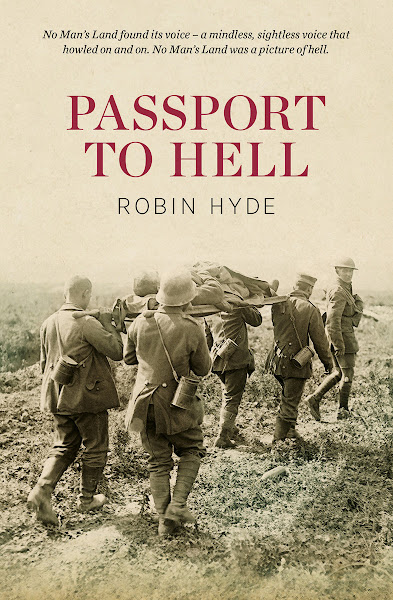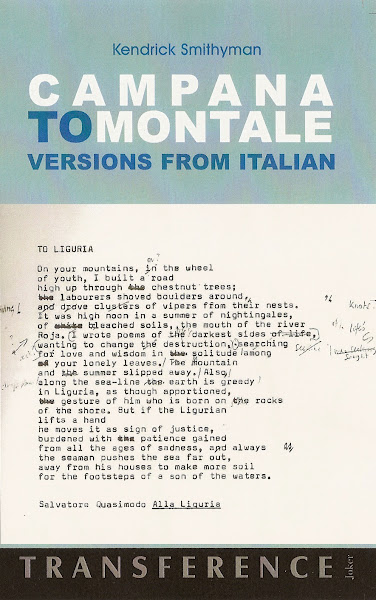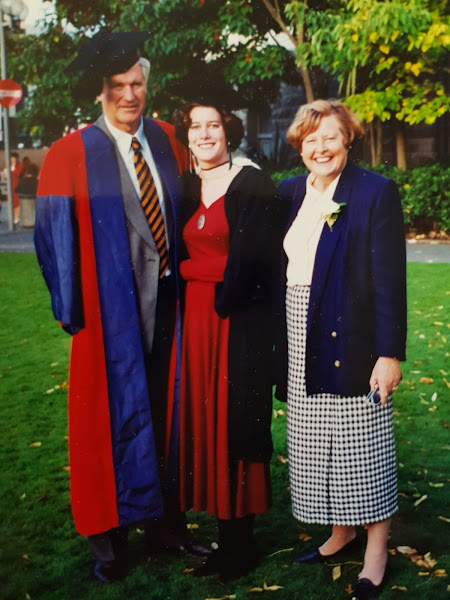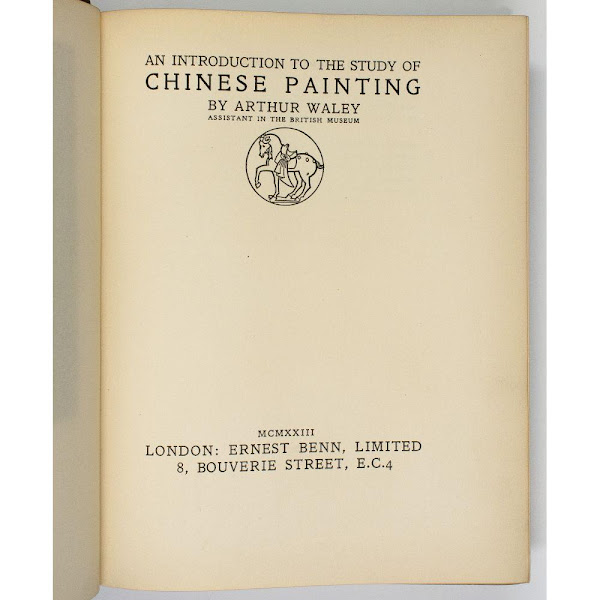My colleague
Bryan Walpert and I are co-supervising a couple of Doctorates in Creative Writing at Massey University, both focussing on poetry. It's not as easy as you might think to keep the critical portion of these projects in balance with the creative.
The other day, at one of our video conferences, he came up with what seemed to me a very intriguing idea for taking a kind of barometer reading of someone else's aesthetic: he asked our PhD student to send us ten of her favourite poems: or (at least) ten poems that seemed truly extraordinary and moving to her.
I've done a couple of "top twenty" posts before now:
20 Favourite 20th-Century Novels and
20 Favourite 20th-Century Long Poems, both back in 2008, but this seemed a little different somehow.
As I see it, the plan is to be as honest as possible about what you
really like, as opposed to what you think you
should like. It got me to thinking about what would be in my own "top ten" - with stress on the poems that I've actually tried to memorise and thus keep with me, rather than those I simply admire from a distance.
Anyway, for what it's worth, here - in alphabetical, rather than chronological, order - is my top ten (
today, at any rate: next week the list might be completely different):
Jack’s Top Ten
Alphabetical (by surname):
- W. H. Auden: “The Letter” [1927]
- Gavin Ewart: “Sonnet: How Life Too is Sentimental” [1980]
- Robert Lowell: “For the Union Dead” [1964]
- Marianne Moore: “Poetry” [1919]
- Ezra Pound: “Lament of the Frontier Guard” [1915]
- Kendrick Smithyman: “Colville” [1968]
- Stephen Spender: “Cadet Cornelius Rilke” [1933]
- Edward Thomas: “Adlestrop” [1917]
- Ian Wedde: “Barbary Coast” [1988]
- W. B. Yeats: “The Circus Animals' Desertion” [1939]
Chronological (by date of publication):
- Ezra Pound (1885-1972):
“Lament of the Frontier Guard” [1915]
- Edward Thomas (1878-1917):
“Adlestrop” [1917]
- Marianne Moore (1887-1972):
“Poetry” [1919]
- W. H. Auden (1907-1973):
“The Letter” [1927]
- Stephen Spender (1909-1995):
“Cadet Cornelius Rilke” [1933]
- W. B. Yeats (1865-1939):
“The Circus Animals' Desertion” [1939]
- Robert Lowell (1917-1977):
“For the Union Dead” [1964]
- Kendrick Smithyman (1922-1995):
“Colville” [1968]
- Gavin Ewart (1916-1995):
“Sonnet: How Life Too is Sentimental” [1980]
- Ian Wedde (1946- ):
“Barbary Coast” [1988]
•
From the very first coming down
Into a new valley with a frown
Because of the sun and a lost way,
You certainly remain: to-day
I, crouching behind a sheep-pen, heard
Travel across a sudden bird,
Cry out against the storm, and found
The year’s arc a completed round
And love’s worn circuit re-begun,
Endless with no dissenting turn.
Shall see, shall pass, as we have seen
The swallow on the tile, spring’s green
Preliminary shiver, passed
A solitary truck, the last
Of shunting in the Autumn. But now,
To interrupt the homely brow,
Thought warmed to evening through and through,
Your letter comes, speaking as you,
Speaking of much but not to come.
Nor speech is close nor fingers numb
If love not seldom has received
An unjust answer, was deceived.
I, decent with the seasons, move
Different or with a different love,
Nor question overmuch the nod
The stone smile of this country god
That never was more reticent
Always afraid to say more than it meant.
[1927]
It's interesting that Auden never rewrote this poem, even in the complete overhaul of his canon he undertook for the 1966 Collected Shorter Poems (which appalled so many of the admirers of his early work). There's an incantatory quality about it which has always fascinated me, and which made me like it long before I had any real understanding of what it was about. It is, after all, the poem he chose to begin his Collected Poems with, despite the fact that there are some earlier ones reprinted later on in the text ...
•
When our son was a few weeks old he had bronchial trouble
and picked up a cross-infection in the hospital
(salmonella typhimurium) through sluttish feeding –
but a hospital never admits it’s responsible –
and was rushed away behind glass in an isolation ward,
at the point, it might be, of death. Our daughter,
eighteen months old, was just tall enough
to look into his empty cot and say: ‘Baby gone!’
A situation, an action and a speech
so tear-jerking that Dickens might have thought of them –
and indeed, in life, when we say ‘It couldn’t happen!’
almost at once it happens. And the word ‘sentimental’
has come to mean exaggerated feeling.
It would have been hard to exaggerate
our feelings then.
[1980]
I really like this poem. Ewart is more associated with light verse than serious poetry, but that's what gives it its sting, I think. That MC sitting beside him in the picture above and cracking up at what he's reading is actually the great Peter Reading ...
•
 [Robert Lowell (1917-1977)]
[Robert Lowell (1917-1977)]
"
Relinquunt Omnia Servare Rem Publicam."
The old South Boston Aquarium stands
in a Sahara of snow now. Its broken windows are boarded.
The bronze weathervane cod has lost half its scales.
The airy tanks are dry.
Once my nose crawled like a snail on the glass;
my hand tingled
to burst the bubbles
drifting from the noses of the cowed, compliant fish.
My hand draws back. I often sigh still
for the dark downward and vegetating kingdom
of the fish and reptile. One morning last March,
I pressed against the new barbed and galvanized
fence on the Boston Common. Behind their cage,
yellow dinosaur steamshovels were grunting
as they cropped up tons of mush and grass
to gouge their underworld garage.
Parking spaces luxuriate like civic
sandpiles in the heart of Boston.
A girdle of orange, Puritan-pumpkin colored girders
braces the tingling Statehouse,
shaking over the excavations, as it faces Colonel Shaw
and his bell-cheeked Negro infantry
on St. Gaudens' shaking Civil War relief,
propped by a plank splint against the garage's earthquake.
Two months after marching through Boston,
half the regiment was dead;
at the dedication,
William James could almost hear the bronze Negroes breathe.
Their monument sticks like a fishbone
in the city's throat.
Its Colonel is as lean
as a compass-needle.
He has an angry wrenlike vigilance,
a greyhound's gentle tautness;
he seems to wince at pleasure,
and suffocate for privacy.
He is out of bounds now. He rejoices in man's lovely,
peculiar power to choose life and die –
when he leads his black soldiers to death,
he cannot bend his back.
On a thousand small town New England greens,
the old white churches hold their air
of sparse, sincere rebellion; frayed flags
quilt the graveyards of the Grand Army of the Republic.
The stone statues of the abstract Union Soldier
grow slimmer and younger each year –
wasp-waisted, they doze over muskets
and muse through their sideburns . . .
Shaw's father wanted no monument
except the ditch,
where his son's body was thrown
and lost with his "niggers."
The ditch is nearer.
There are no statues for the last war here;
on Boylston Street, a commercial photograph
shows Hiroshima boiling
over a Mosler Safe, the "Rock of Ages"
that survived the blast. Space is nearer.
When I crouch to my television set,
the drained faces of Negro school-children rise like balloons.
Colonel Shaw
is riding on his bubble,
he waits
for the blessèd break.
The Aquarium is gone. Everywhere,
giant finned cars nose forward like fish;
a savage servility
slides by on grease.
[1964]
I talk a bit about this poem in my post on The Literature of the Civil War. I do think it's a great example of the "State of the Nation" poem, something I say more about in my Jacket2 column here...
•
I, too, dislike it: there are things that are important beyond
all this fiddle.
Reading it, however, with a perfect contempt for it, one
discovers in
it after all, a place for the genuine.
Hands that can grasp, eyes
that can dilate, hair that can rise
if it must, these things are important not because a
high-sounding interpretation can be put upon them but because
they are
useful. When they become so derivative as to become
unintelligible,
the same thing may be said for all of us, that we
do not admire what
we cannot understand: the bat
holding on upside down or in quest of something to
eat, elephants pushing, a wild horse taking a roll, a tireless
wolf under
a tree, the immovable critic twitching his skin like a horse
that feels a flea, the base-
ball fan, the statistician –
nor is it valid
to discriminate against “business documents and
school-books”; all these phenomena are important. One must make
a distinction
however: when dragged into prominence by half poets, the
result is not poetry,
nor till the poets among us can be
“literalists of
the imagination” – above
insolence and triviality and can present
for inspection, “imaginary gardens with real toads in them,”
shall we have
it. In the meantime, if you demand on the one hand,
the raw material of poetry in
all its rawness and
that which is on the other hand
genuine, you are interested in poetry.
[1919]
Moore famously repudiated this poem, and cut it and cut it until it finally consisted of an abridged version of the first three lines (minus the "beyond all this fiddle"). Paul Celan translated the whole thing into German, though, which to me is pretty much a guarantee of its quality. Here it is in its complete, original form ...
•
By the North Gate, the wind blows full of sand,
Lonely from the beginning of time until now!
Trees fall, the grass goes yellow with autumn.
I climb the towers and towers
to watch out the barbarous land:
Desolate castle, the sky, the wide desert.
There is no wall left to this village.
Bones white with a thousand frosts,
High heaps, covered with trees and grass;
Who brought this to pass?
Who has brought the flaming imperial anger?
Who has brought the army with drums and with kettle-drums?
Barbarous kings.
A gracious spring, turned to blood-ravenous autumn,
A turmoil of wars-men, spread over the middle kingdom,
Three hundred and sixty thousand,
And sorrow, sorrow like rain.
Sorrow to go, and sorrow, sorrow returning,
Desolate, desolate fields,
And no children of warfare upon them,
No longer the men for offence and defence.
Ah, how shall you know the dreary sorrow at the North Gate,
With Rihoku’s name forgotten,
And we guardsmen fed to the tigers.
[1915]
Those early poems from Cathay are some of Pound's finest, I think. I suppose one could argue that it's a translation rather than an original poem,, but given the complicated mode of transmission from Ernest Fenollosa's notes from the Japanese, it seems better to concentrate on how it superimposes a kind of World War One landscape on the original Chinese one ...
•
That sort of place where you stop
long enough to fill the tank, buy plums,
perhaps, and an icecream thing on a stick
while somebody local comes
in, leans on the counter, takes a good look
but does not like what he sees of you,
intangible as menace,
a monotone with a name, as place
it is an aspect of human spirit
(by which shaped), mean, wind-worn. Face
outwards, over the saltings: with what merit
the bay, wise as contrition, shallow
as their hold on small repute,
good for dragging nets which men are doing
through channels, disproportionate in the blaze
of hot afternoon’s down-going
to a far fire-hard tide’s rise
upon the vague where time is distance?
It could be plainly simple
pleasure, but these have another tone
or quality, something aboriginal,
reductive as soil itself – bone
must get close here, final
yet unrefined at all. They endure.
A school, a War Memorial
Hall, the store, neighbourhood of salt
and hills. The road goes through to somewhere else.
Not a geologic fault
line only scars textures of experience.
Defined, plotted; which maps do not speak.
[1968]
I have a good deal to say about this poem in my post A Visit to Colville. It's one of Kendrick's finest, I think ...
•
Rolled over on Europe: the sharp dew frozen to stars
Below us; above our heads, the night
Frozen again to stars; the stars
In pools between our coats, and that charmed moon.
Ah, what supports? What cross draws out our arms,
Heaves up our bodies towards the wind
And hammers us between the mirrored lights?
Only my body is real; which wolves
Are free to oppress and gnaw. Only this rose
My friend laid on my breast, and these few lines
written from home, are real.
[1933]
This is kind of a weird choice, I suppose. Again, it might be my taste for incantatory eloquence which made it stand out for me among Spender's early poems. It wasn't till later that I realised it was made up of phrases culled from Rilke's impressionistic early short story "Cadet Cornelius Rilke". It's hard to say if that makes it a translation or an original poem. Can that be regarded as a real distinction anymore, in fact?
•
Yes. I remember Adlestrop –
The name, because one afternoon
Of heat the express-train drew up there
Unwontedly. It was late June.
The steam hissed. Someone cleared his throat.
No one left and no one came
On the bare platform. What I saw
Was Adlestrop – only the name
And willows, willow-herb, and grass,
And meadowsweet, and haycocks dry,
No whit less still and lonely fair
Than the high cloudlets in the sky.
And for that minute a blackbird sang
Close by, and round him, mistier,
Farther and farther, all the birds
Of Oxfordshire and Gloucestershire.
[1917]
This is the first poem I ever read by Edward Thomas, but I've loved his poetry ever since. I could easily have chosen any of a number of others, but this one still appeals to me deeply. He manages to get away with the poeticisms in stanza three and even gets them to work for him in a strange way, I'm not quite sure how ...
•
When the people emerge from the water
who can tell if it’s brine or tears
that streams from them, purple sea
or the bruises of their long immersion?
They seem to weep for the dreams they had
which now the light slices into buildings
of blinding concrete along the Corniche.
Is it music or news the dark windows utter?
Day-long dazzle of the shallows
and at night the moon trails her tipsy sleeves
past the windows of raffish diners.
The hectic brake-lights of lovers
jam the streets. My place or your place.
They lose the way again and again.
At dawn the birds leave the trees in clouds,
they petition the city for its crumbs.
The diners are cheap and the food is bad
but you’d sail a long way to find anything
as convenient. Pretty soon, sailor boy,
you’ll lose your bearings on language.
Language with no tongue
to lash it to the teller.
Stern-slither of dogfish guttings.
Sinbad’s sail swaying in the desert.
Only those given words can say what they want.
Out there the velvet lady runs her tongue
over them. And she is queen of the night –
her shadow flutters in the alleys.
And young sailors, speechless, lean
on the taffrail. They gaze at the queen’s amber
but see simple lamps their girls hang in sash windows.
Thud of drums. Beach-fires. Salt wind in the ratlines.
Takes more than one nice green kawakawa
leaf, chewed, to freshen the mouth
that’s kissed the wooden lips of the figurehead
above history’s cut-water
in the barbarous isles’
virgin harbours. That hulk shunned by rats
bursts into flames.
And now the smoky lattice of spars
casts upon the beach
the shadow-grid of your enlightened city.
And now I reach through them – I reach
through the eyes of dreaming sailors,
faces inches from the sweating bulkheads,
blankets drenched in brine and sperm.
Trailing blood across the moon’s wake
the ship bore out of Boka Bay.
Trailing sharks, she sailed
for Port Destruction. In Saint Van le Mar,
Jamaica, Bligh’s breadfruit trees grew tall.
In Callao on the coast of Peru
geraniums bloomed like sores
against whitewashed walls.
The dock tarts’ parrots jabbering
cut-rates in six tongues.
The eroding heartland, inland cordillera
flashing with snow – these the voyager forgets.
His briny eyes
flood with chimerical horizons.
‘I would tell you if I could – if I could
remember, I would tell you.
All around us the horizons
are turning air into water
and I can’t remember
where the silence ended and speech began,
where vision ended and tears began.
All our promises vanish into thin air.
What I remember are the beaches of that city
whose golden children dance
on broken glass. I remember cold beer
trickling between her breasts as she drank.
But my paper money burned
when she touched it. The ship
clanked up to its bower, the glass towers
of the city burned back there in the sunset glow.’
Cool star foundering in the west.
Coast the dusty colour of lions.
The story navigates by vectors
whose only connection is the story.
The story is told in words
whose only language is the story.
All night the fo’c’s’le lamp smokes above the words.
All day the sun counts the hours of the story.
Heave of dark water where something
else turns – the castaway’s tongue
clappers like a mission bell.
Unheard his end, and the story’s.
Raconteurs in smoky dives
recall his phosphorescent arm
waving in the ship’s wake.
Almost gaily. But the ship sailed on.
[1988]
One necessary constraint on this choice of poems was length. I was originally going to include Paul Muldoon's extraordinary elegy Incantata as one of my ten, but it's just too long to reprint or really take in at a sitting. This, too, is quite a long poem, but I felt that I had to include it even so. I say more about it here, but its true significance remains mysterious to me: mysterious, but somehow immensely alluring.
•
I sought a theme and sought for it in vain,
I sought it daily for six weeks or so.
Maybe at last, being but a broken man,
I must be satisfied with my heart, although
Winter and summer till old age began
My circus animals were all on show,
Those stilted boys, that burnished chariot,
Lion and woman and the Lord knows what.
II
What can I but enumerate old themes,
First that sea-rider Oisin led by the nose
Through three enchanted islands, allegorical dreams,
Vain gaiety, vain battle, vain repose,
Themes of the embittered heart, or so it seems,
That might adorn old songs or courtly shows;
But what cared I that set him on to ride,
I, starved for the bosom of his faery bride.
And then a counter-truth filled out its play,
'The Countess Cathleen' was the name I gave it;
She, pity-crazed, had given her soul away,
But masterful Heaven had intervened to save it.
I thought my dear must her own soul destroy
So did fanaticism and hate enslave it,
And this brought forth a dream and soon enough
This dream itself had all my thought and love.
And when the Fool and Blind Man stole the bread
Cuchulain fought the ungovernable sea;
Heart-mysteries there, and yet when all is said
It was the dream itself enchanted me:
Character isolated by a deed
To engross the present and dominate memory.
Players and painted stage took all my love,
And not those things that they were emblems of.
III
Those masterful images because complete
Grew in pure mind, but out of what began?
A mound of refuse or the sweepings of a street,
Old kettles, old bottles, and a broken can,
Old iron, old bones, old rags, that raving slut
Who keeps the till. Now that my ladder's gone,
I must lie down where all the ladders start
In the foul rag and bone shop of the heart.
[1939]
Well, what can you say? The aging Yeats reinvents himself yet again, "Lion and woman and the Lord knows what" - how can you just keep on getting better and better and simpler and simpler over the course of a fifty-year career?
•
So there you are: that's my ten. They do say some slightly disqueting things about my taste, I suppose. Nine out of my ten poets are men; nine out of my ten poets are dead;
all of them are white ...
Having ruled out straight translations, though - and also longer poems - I guess it's kind of inevitable that I should gravitate to the kinds of poems I loved when I was a kid: eloquent, even grandiloquent at times, but with the Modernist fetish for simplicity constantly undermining their verbal flourishes.
What would
your list look like?
 D. I. B. Smith (1934-2023)
D. I. B. Smith (1934-2023)










































